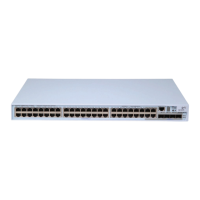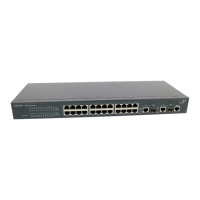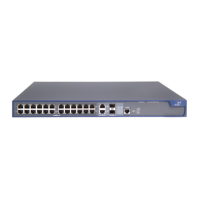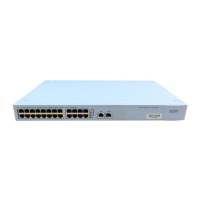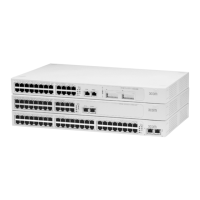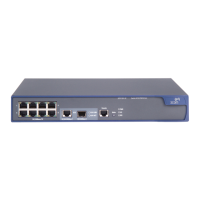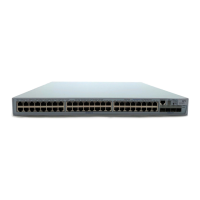1-4
Figure 1-3 The format of an EAPoL packet
In an EAPoL packet:
z The PAE Ethernet type field holds the protocol identifier. The identifier for 802.1x is 0x888E.
z The Protocol version field holds the version of the protocol supported by the sender of the EAPoL
packet.
z The Type field can be one of the following:
00: Indicates that the packet is an EAP-packet, which carries authentication information.
01: Indicates that the packet is an EAPoL-start packet, which initiates the authentication.
02: Indicates that the packet is an EAPoL-logoff packet, which sends logging off requests.
03: Indicates that the packet is an EAPoL-key packet, which carries key information.
04: Indicates that the packet is an EAPoL-encapsulated-ASF-Alert packet, which is used to
support the alerting messages of Alerting Standards Forum (ASF).
z The Length field indicates the size of the Packet body field. A value of 0 indicates that the Packet
Body field does not exist.
z The Packet body field differs with the Type field.
Note that EAPoL-Start, EAPoL-Logoff, and EAPoL-Key packets are only transmitted between the
supplicant system and the authenticator system. EAP packets are encapsulated by RADIUS protocol to
allow them successfully reach the authentication servers. Network management-related information
(such as alarming information) is encapsulated in EAPoL-Encapsulated-ASF-Alert packets, which are
terminated by authenticator systems.
The format of an EAP packet
For an EAPoL packet with the value of the Type field being EAP-packet, its Packet body field is an EAP
packet, whose format is illustrated in
Figure 1-4.
Figure 1-4 The format of an EAP packet
In an EAP packet:
z The Code field indicates the EAP packet type, which can be Request, Response, Success, or
Failure.
z The Identifier field is used to match a Response packet with the corresponding Request packet.

